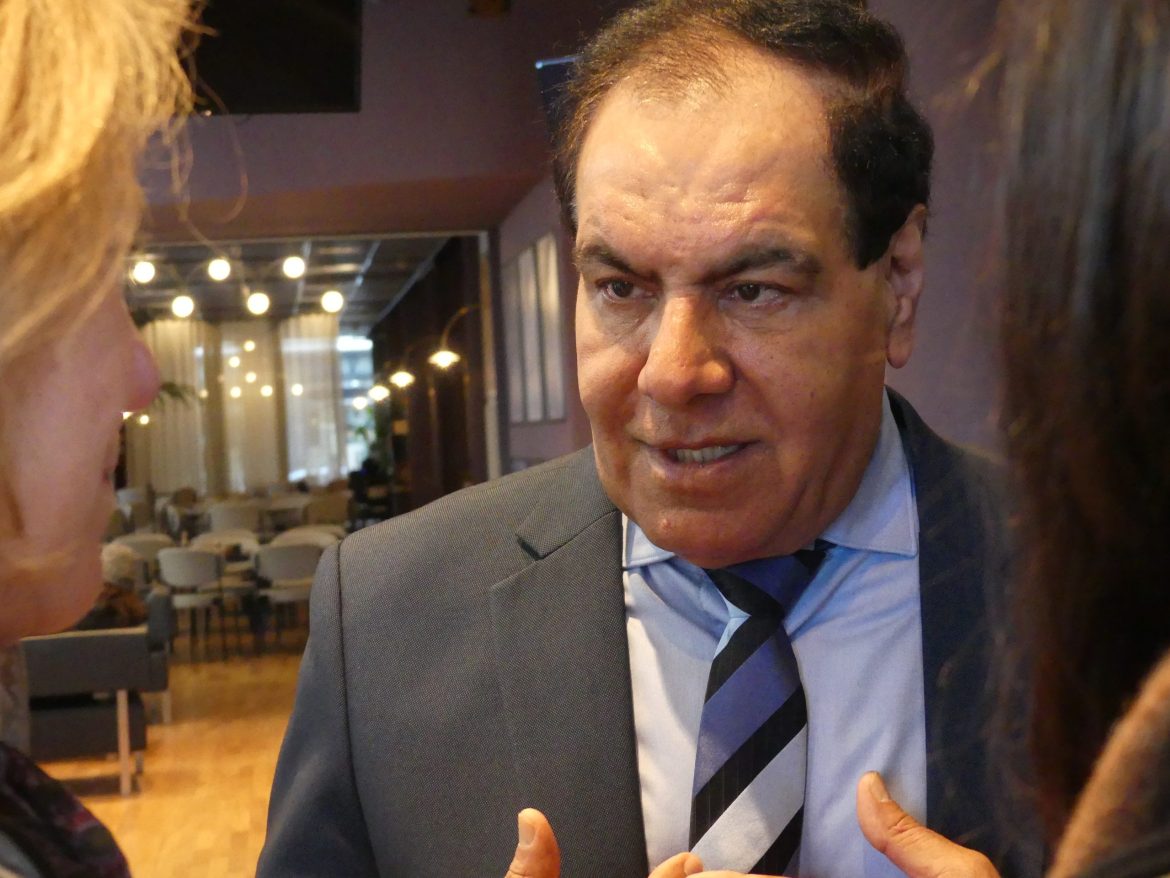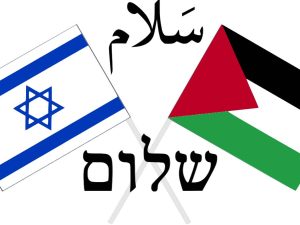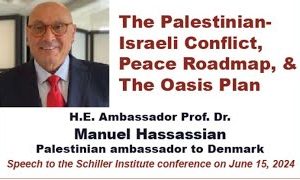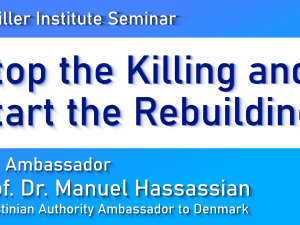
The following article by Dr. Izzeldin Abuelaish was published on May 15, 2024 in the Toronto Star.
I am in Canada. My family is constantly reliving the Nakba in Gaza. To me, it’s clear what Palestinians need from the international community
In the Gaza Strip, the concept of Nakba, the catastrophe, is not a distant memory relegated to history books; it is a recurrent nightmare, an ever-present reality that engulfs the lives of its inhabitants.
Picture caption: Dr. Izzeldin Abuelaish, whose children, Mayar, 15, Aya, 14, and Bessan, 21, were killed years ago by a tank attack on their home in the Gaza Strip in 2009. On the 76th anniversary of the Nakba, he writes for a ceasefire in Gaza.
I am a Palestinian-Canadian refugee who was born, raised, and lived in Jabalia Refugee Camp in the Gaza Strip. And still my family and home are there under fire and uncertainty.
I am the son of refugee parents who are survivors of the Nakba in 1948 when they were expelled from their homes to create the Israeli state.
I have in the years since lost children and family members to the endless conflict.
This week marks 76 years since the uprooting of 700,000 Palestinians. It stands as a poignant reminder of the enduring human cost of war and displacement.
In the Gaza Strip, the concept of Nakba, the catastrophe, is not a distant memory relegated to history books; it is a recurrent nightmare, an ever-present reality that engulfs the lives of its inhabitants.
Even before October 7, the Gaza Strip was hopeless, lifeless, jobless, lightless, helpless, freedom-less.
The people of Gaza have already endured multiple military offensives, blockades, and sieges.
It was a hell; now it’s a ghost. Mass destruction, mass displacement, mass suffering, mass death.
The Palestinian nation is facing the continued waterfall of dripping blood.
In seven months, Palestinians in the Gaza Strip have been displaced more than 10 times.
You will find the slaughtered, the wounded, the displaced, the expelled, the hungry, the thirsty, the naked, the cold and the missing.
Nothing can be said about Gaza, or Palestine.
The rising dust, smoke, ash, death says it all.
The pictures of children’s corpses say it all. Among the rubble and dust. The walls of the homes, filled with memories and stories, now demolished and cracked.
We have nothing but words and condemnation. We have nothing but anger and emotions. Fear vanished a long time ago.
All this is happening, and the international community is too often quiet, too often complicit. What is their responsibility? What about accountability?
I condemn all killing of civilians, Palestinian, Israeli and beyond.
But is the response of Israel to Hamas’s horrific incursion into Israel truly proportionate? Has it achieved or come close to achieving the goals Israel announced when it launched its retaliation?
Every day adds more evidence that Netanyahu does not want this war to stop. He should have the courage to take responsibility and admit his failure.
The war in the Gaza Strip, whatever Israel’s stated aims, has amounted to aggression against innocent Palestinians. This, with the complicity of the U.S., UK, France, Germany, Italy and Canada.
The problem lies not with international law but with the international community and the countries that pay lip service to the rights-based international order. We need accountability, consistency, transparency.
We need to deal with the Palestinian issue through a comprehensive, holistic approach, not in a fragmented fashion.
This necessitates addressing core issues such as the right of return for Palestinian refugees, the establishment of a viable Palestinian state alongside Israel, an end to the occupation of Palestinian territories, and a just resolution to the status of Jerusalem.
History is essential to help us learn the truth, to accurately diagnose the issues and prescribe the right treatment.
When those displaced in Gaza return to their neighborhoods it will open their wounds.
They will remember their loved ones. I know.
They may dig up the rubble in search of their children underneath, which may reignite their pain. I know.
Despite this, to return to their homes will give them life, and rebuilding what has been destroyed will give them a future. Their steadfastness on their land is their victory.
We need permanent ceasefire now. We need the release of all Israeli hostages and Palestinian political prisoners. We need to stop the bloodshed, stop the bombardment, stop the killing, end the occupation.
Bring peace to a land that was created for peace and never saw a peaceful day. In the words of Palestinian poet Mahmoud Darwish, “On this land, there is what deserves life.”
Izzeldin Abuelaish is professor of Global Health/Clinical Public Health Division, Dalla Lana School of Public Health at the University of Toronto. He was born and raised in Jabalia refugee camp in the Gaza Strip.
Link til artiklen i Toronto Star.
Se også Schiller Institut i Danmarks meget bevægende interview med Dr. Abuelaish her.
Billede: Schiller Instituttet, Michelle Rasmussen







